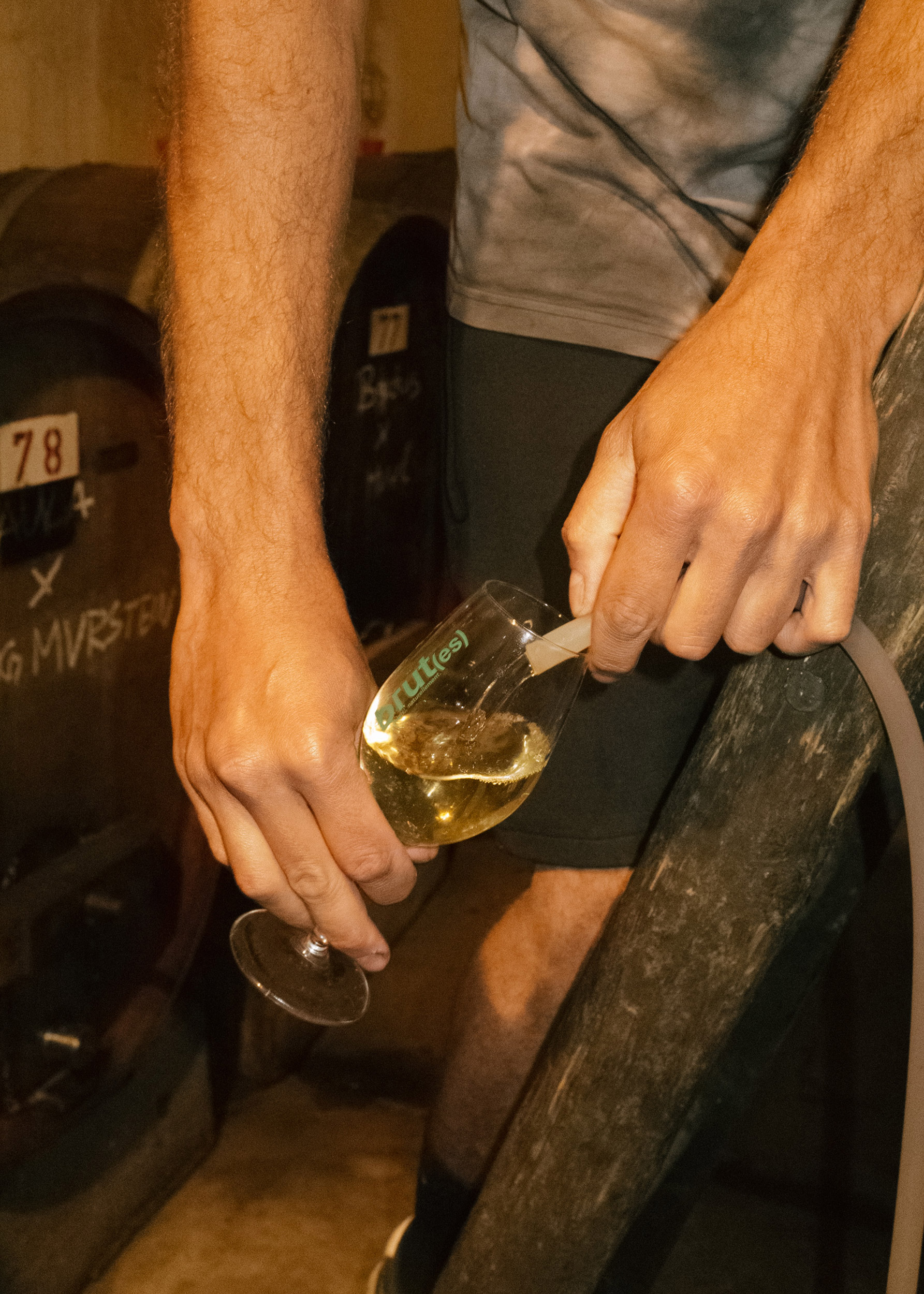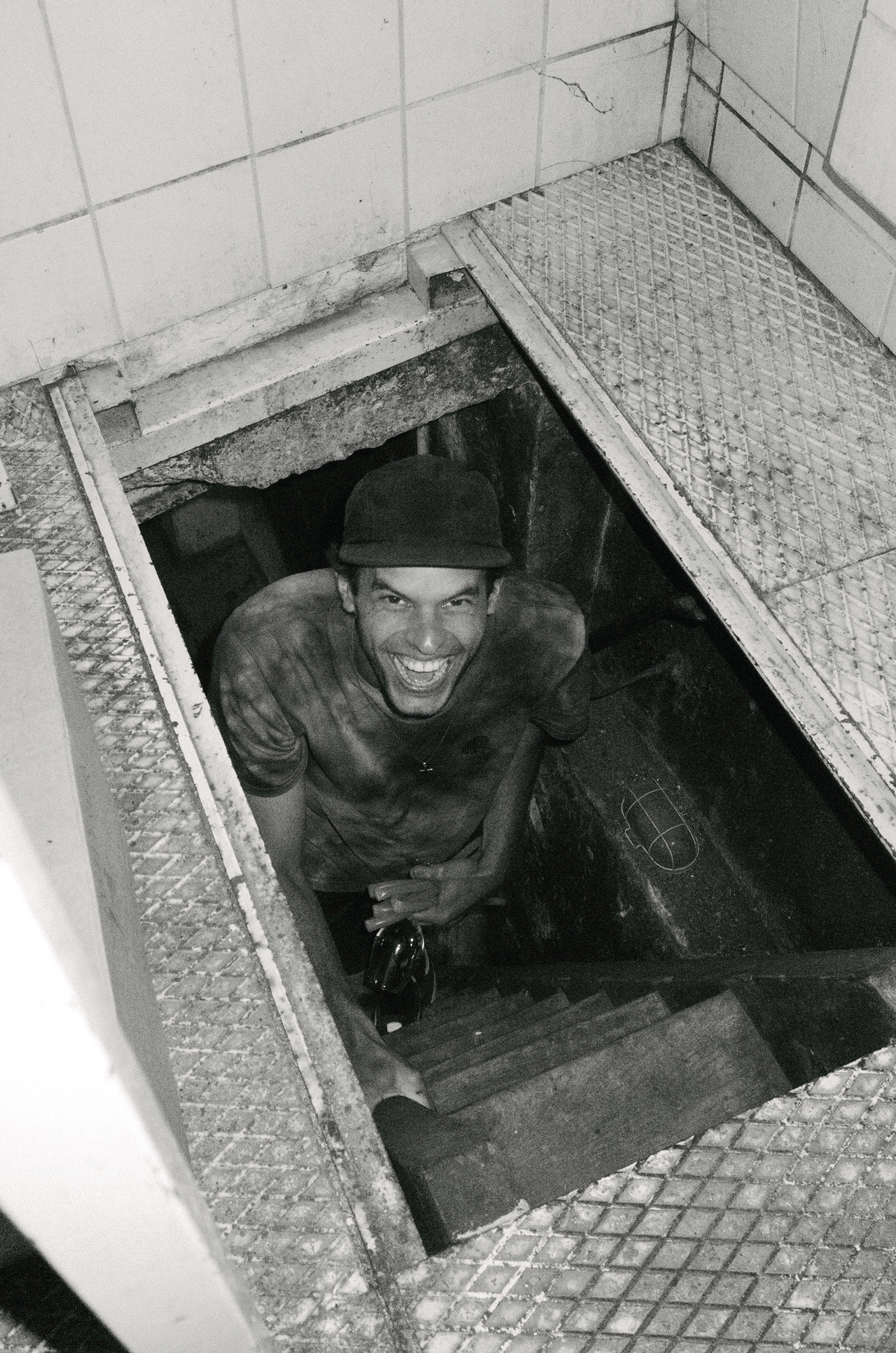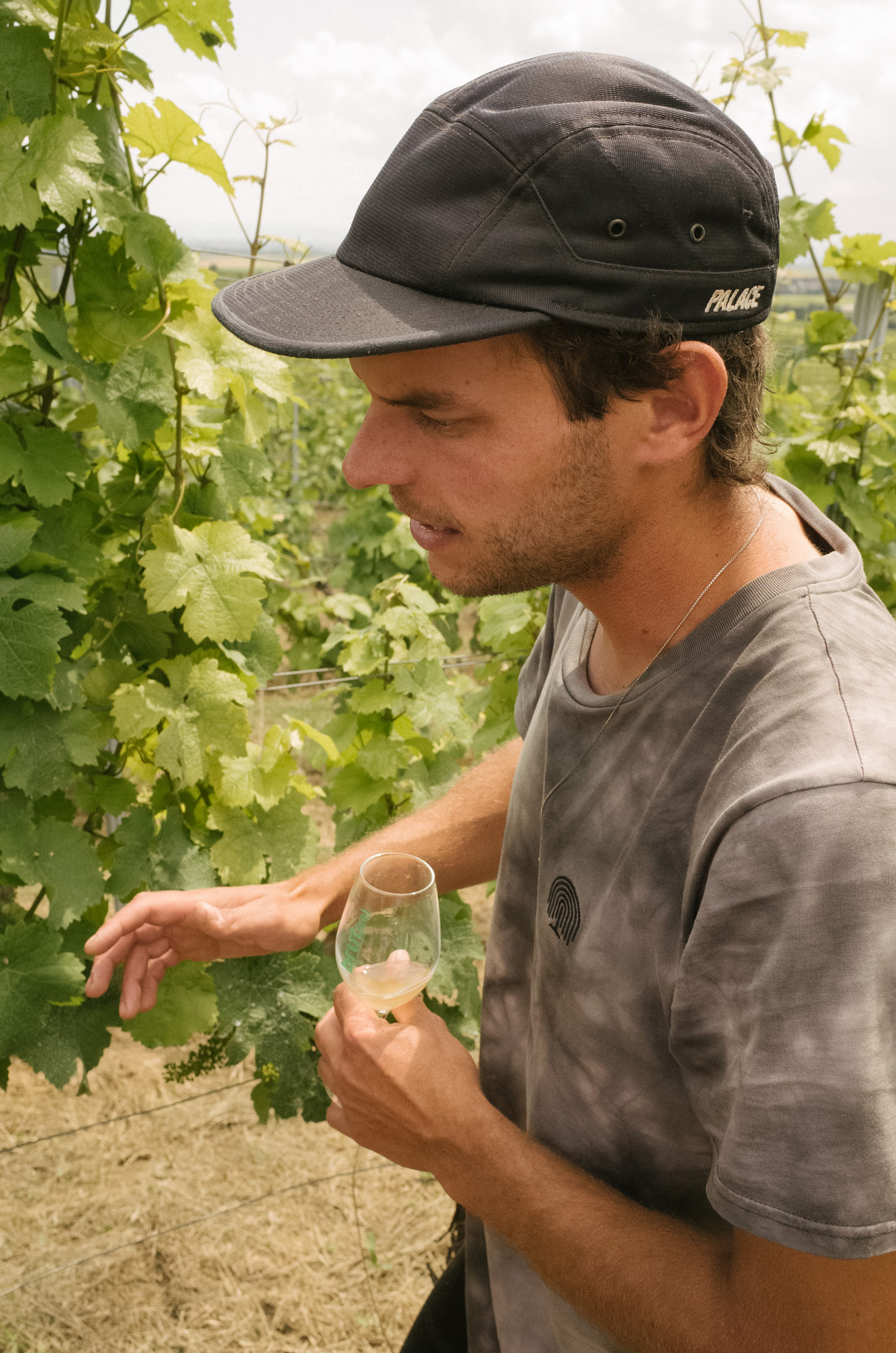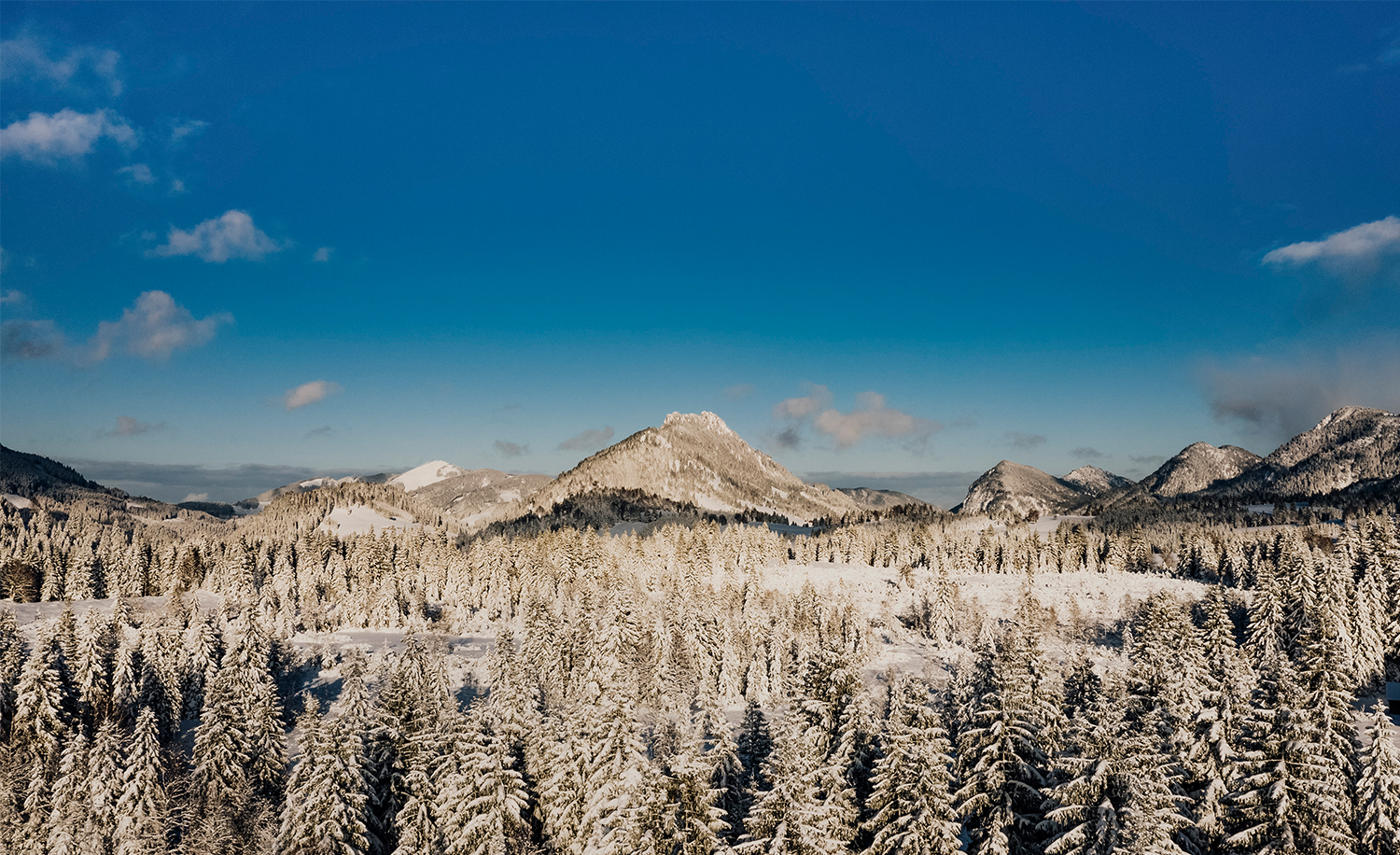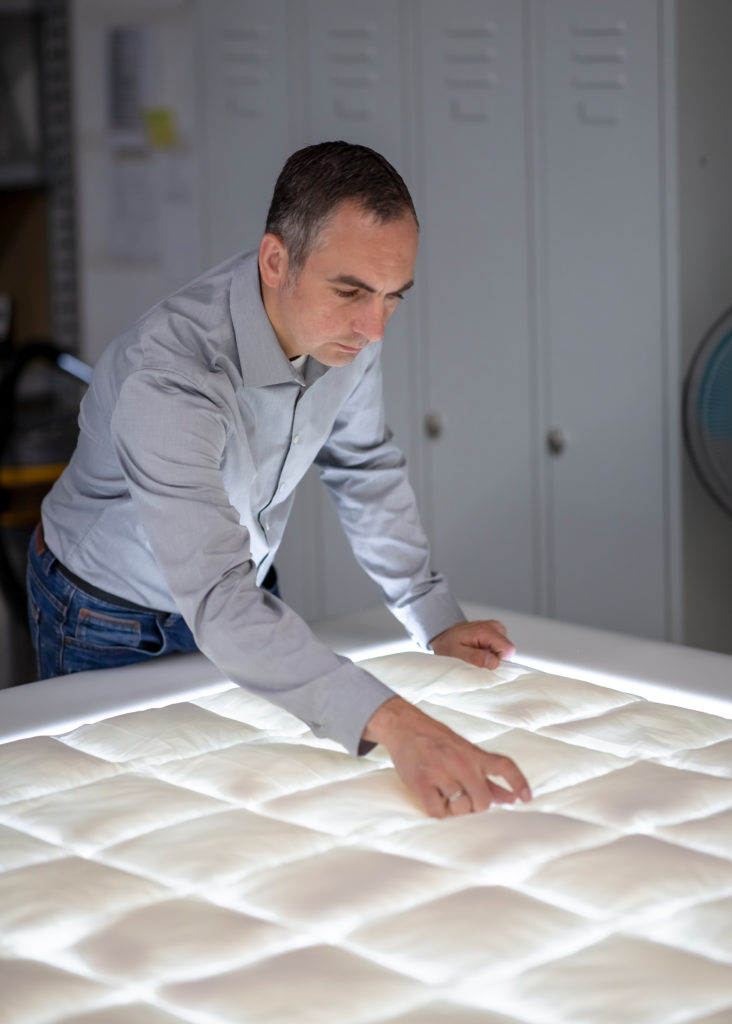Jason Groebe is a fifth generation winemaker. The 29-year-old runs the Bergkloster winery in Rhineland-Palatinate with his parents. A conversation about what it’s like to assert oneself in a family business and the question of why natural wine is grossly underestimated in Germany.
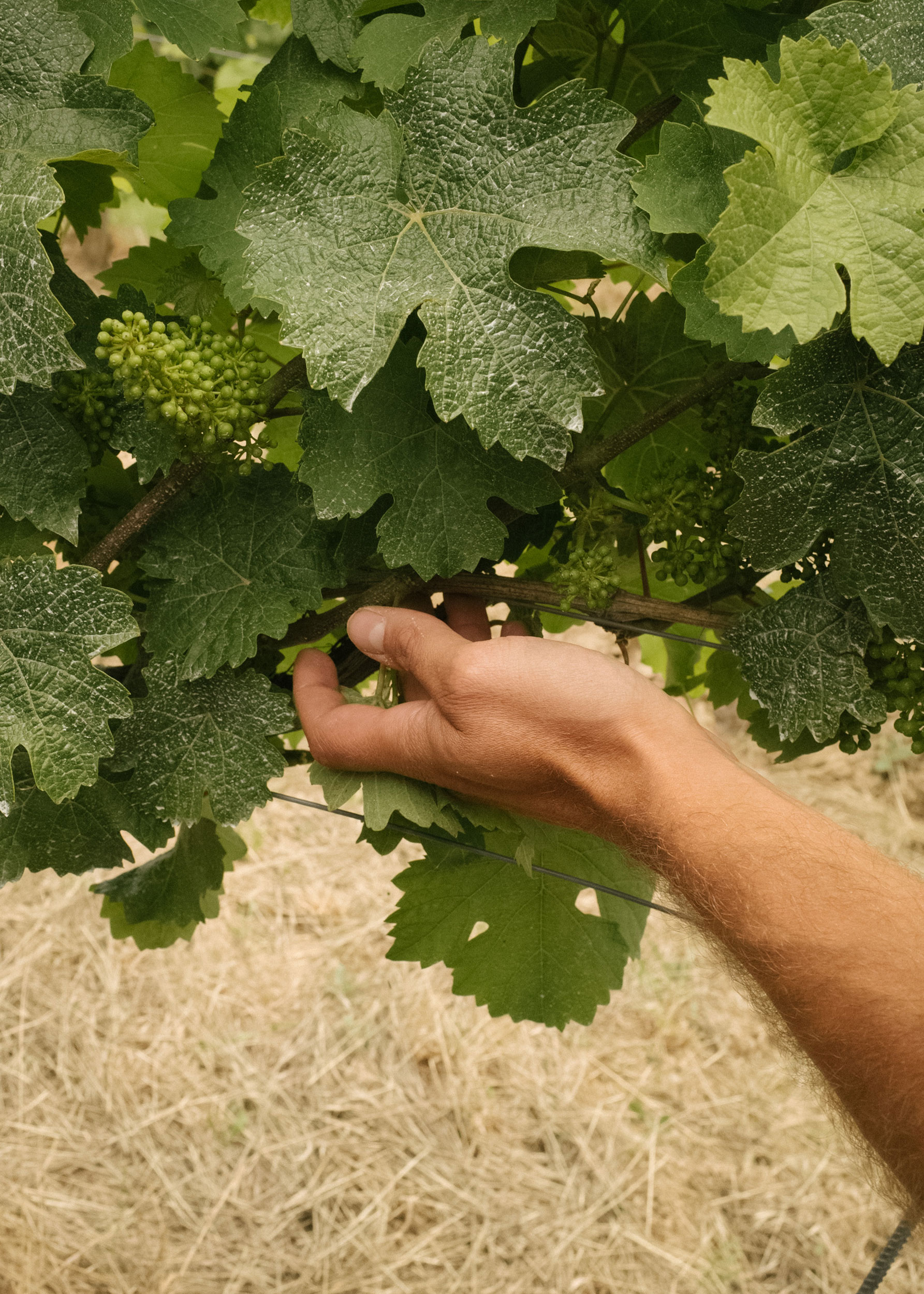
Jason, how does a family business work?
JasonIt is tempting to read every cultural gesture against the daily dramas of what’s current: the pandemic, the protests, and the uprising. This is especially true when the subjects of that art are the same people who have been disproportionately affected. Yet it is equally true that good art can — and does — expand conceptually and culturally. It is capable of meeting any moment, no matter the time when the art was made. Earlier this year, in the Before, let’s call it, the New York based, emerging artist Chase Hall painted the portrait “The Black Birderers Association”.
You live and work together on the farm, doesn’t that get too tight for you sometimes?
JasonI now have my own apartment on the winery and can also withdraw from time to time. In the morning we plan the day together – afterwards everyone does their own thing. But important decisions are always made by three people, which is very important to me.
When did you realize that you wanted to take over the winery?
JasonI always knew that, but my parents said: You only do this if you really want to, you need the passion for it. So I started my apprenticeship in 2011 and then studied. And I realized: wine growing is my thing.
You have specialized in natural wines. Why did you want to do it differently from your parents?
JasonUntil 2017, I made my wines relatively classic, Rhine-Hessian. In 2018 I decided to only make natural wines. That means: wines without sulfur, additives and
filtration. I don’t want to go with the flow. Natural wine is real and authentic. That is incredibly important to me.
As a winemaker, I represent my wines and I don’t want to have to bend over. If I were in a suit at a trade fair, it wouldn’t be me. For me, natural wine is life in the bottle. The wine gives you something completely different. For example, when I drink sulphurized wine, it is nice and tastes good. It can also be an excellent wine, but it is no longer my taste or my style. If I only drink natural wine, the mood is very different. The life and energy that the winemaker has put into the wine simply passes on to the people.
How did your parents react when you wanted to steer the winery in a different direction in the future?
JasonI know many cases in which the parents cannot let go and reject new ideas. Of course, this leads to disagreement in the long run. I think it’s a shame when I see winemakers who have incredible potential but who are thwarted by their parents. The consequence is usually that after five years the children decide to go where they have more freedom.
It is very difficult for winemakers to let go. Everything we do is emotion. The moment the son announces that he wants to do everything differently, he basically says: I know better. And then it gets personal. I have a lot of respect for my parents for being able to take a step back and let me do it.
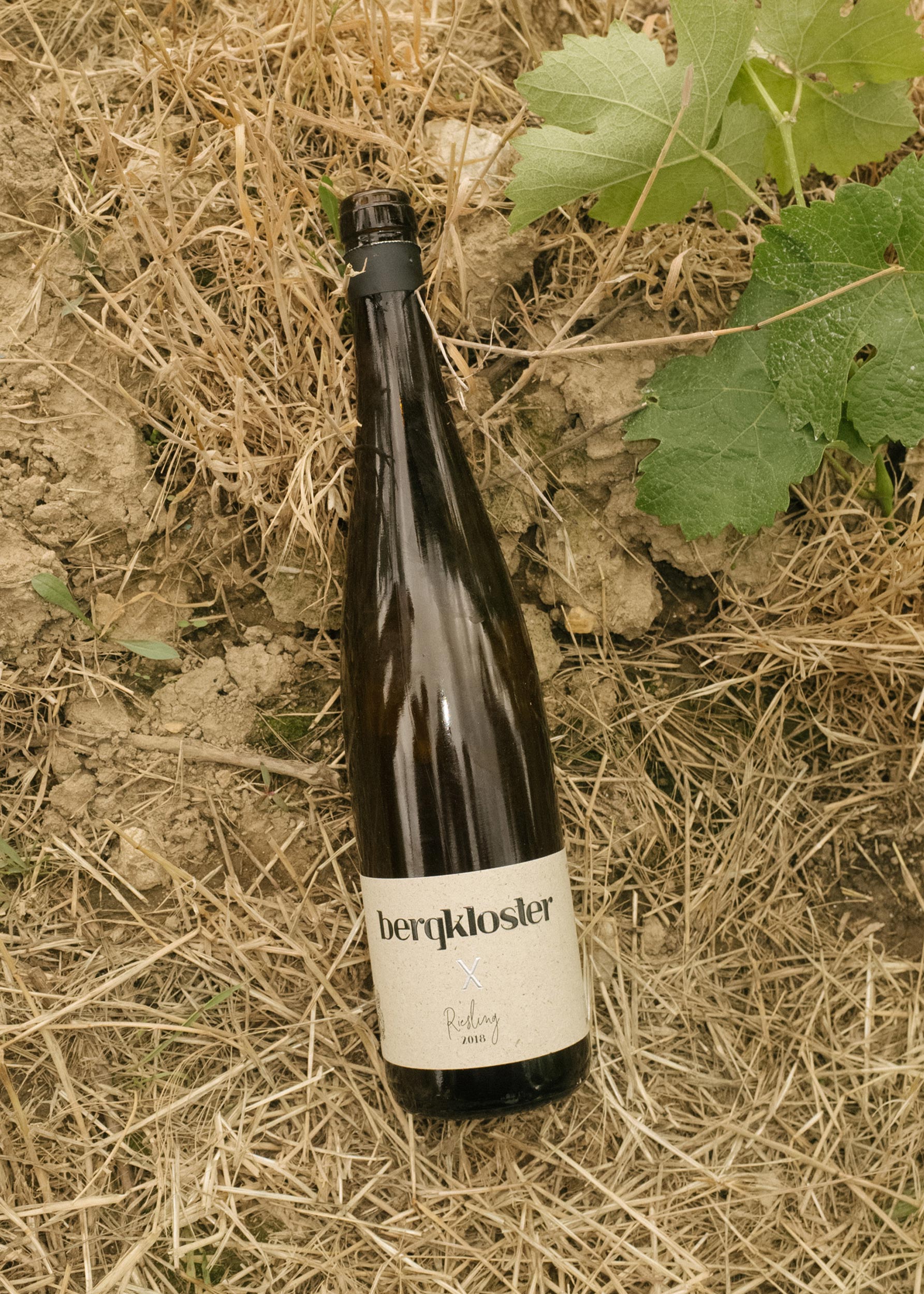
Bergkloster, Riesling 2018
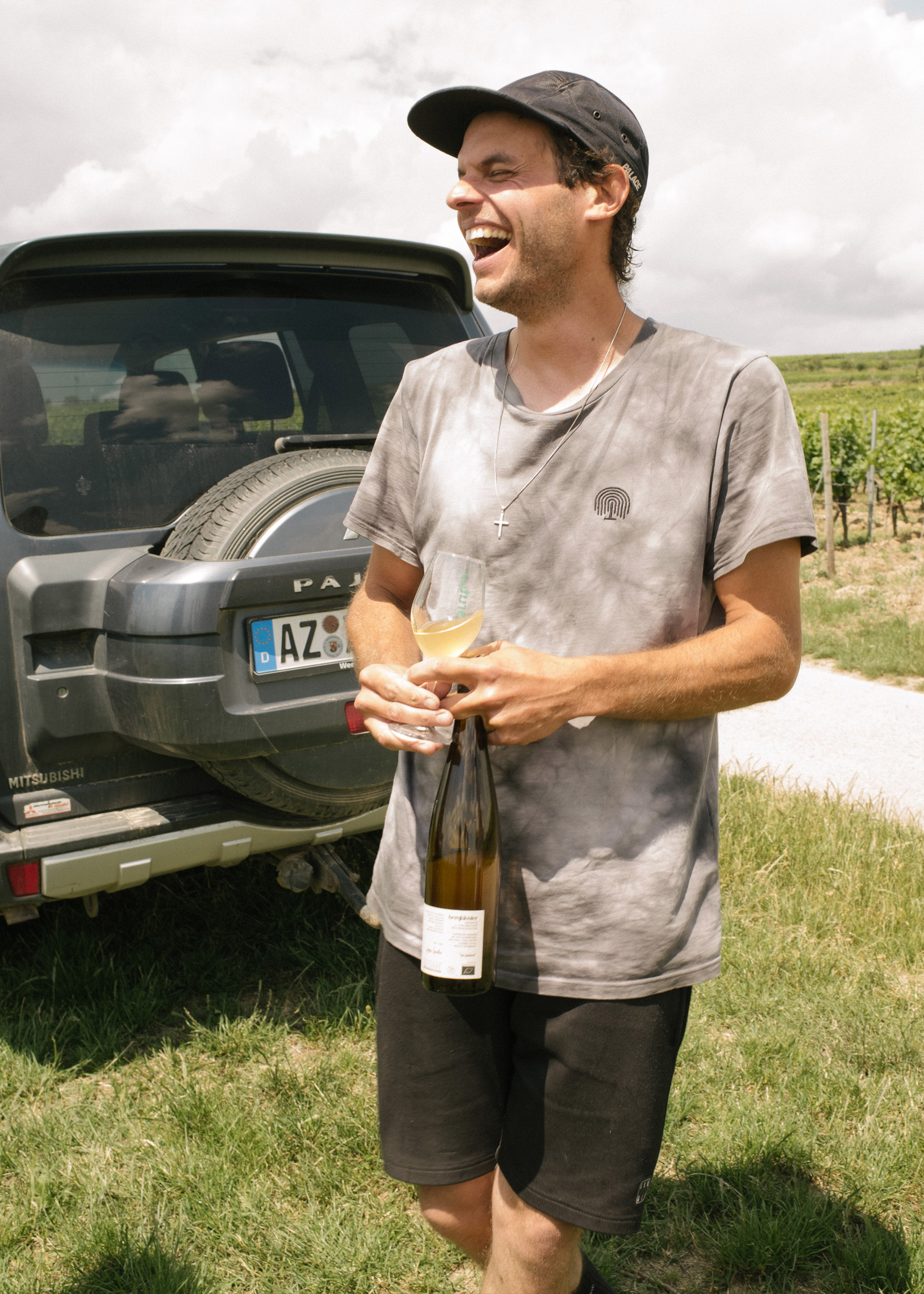
“Everything we do is emotion.”
It is very difficult for winemakers to let go. Everything we do is emotion. The moment the son announces that he wants to do everything differently, he basically says: I know better. And then it gets personal. I have a lot of respect for my parents for being able to take a step back and let me do it.
You run the winery in the fifth generation. What role does sustainability play in your work?
JasonThe vineyards are all of our belongings, which is why it is very important to me to work sustainably and treat our soils with respect. If we screw up the floor, the next generation won’t have much of it.
The problem with natural wine is that we hardly have any sales in Germany. The market is not there yet. That means that I have to send 90 percent of my wine abroad. I take a somewhat critical view of that, as well as the many trade fair visits. We have some really good trade fairs in Germany, but most of them take place abroad – and of course you have to get there first.
I am curious to see how the market in Germany will develop in the future. I notice that my generation is getting a completely different understanding of food again. I think the trend will be away from fast and industrial products and back to handicrafts.
What do you love most about your job?
JasonThe versatility and working with nature. She always keeps me humble. I keep noticing how dependent I am on nature. A lot can happen during vegetation, from frost to hail. A friend of mine lost 60 percent of his income this year because he had frost in the spring. I am never in full control. That’s what I enjoy the most.
My job is also a lot about friendship. In the wine scene it is like this: if the importers don’t get along with the winemaker, they won’t sell his wines either. So I’m on the same wavelength as most of them. I want to be friends with the people I work with. I’m really excited to fly to England, for example, and drink wine there with an importer.
What does the perfect evening look like for you?
JasonWith friends, good bottles of wine, great food and, in the best case, a beautiful view. It doesn’t take more. For me that is quality of life.
